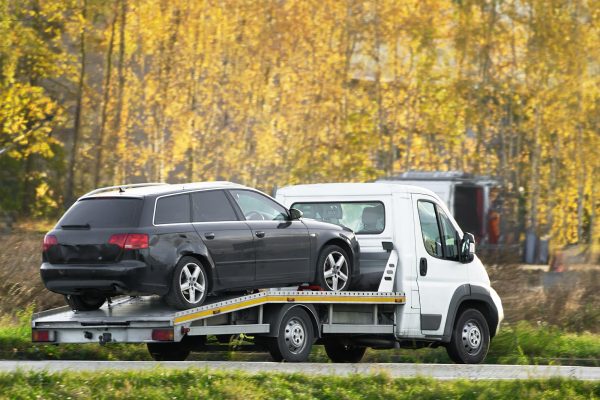Anyone operating goods vehicles over 3,500 kg maximum gross weight for business purposes in Great Britain needs to hold an operator’s license, also known as an O-license. This system exists to maintain road safety standards and ensure fair competition in the road transport industry.
However, certain vehicles and operations are exempt from operator licensing requirements. One key exemption applies to recovery vehicles that meet the legal definition under the Vehicle Excise and Registration Act 1994. To qualify for this exemption, a recovery vehicle must be constructed or permanently adapted primarily for lifting, towing, and transporting broken-down vehicles. The vehicle must also only be used for specific recovery purposes, such as collecting broken-down vehicles or moving them between repair locations.
The starting point is that all vehicles over 3,500 kg used for carrying goods require an operator’s license. This includes vehicles used to transport other vehicles, even if they look like traditional recovery or breakdown vehicles. The key factor is how the vehicle is being used rather than its physical appearance.
For example, a recovery vehicle transporting a non-disabled car from one garage forecourt to another would be classified as a haulage operation requiring an operator’s license, regardless of the type of vehicle being used. The recovery vehicle exemption only applies when dealing with genuinely broken-down vehicles.

There is also an exemption from operator licensing for vehicles being used under police authority. For instance, a vehicle seized by police for having no insurance could be recovered without needing an operator’s license. However, if that same vehicle was subsequently moved at the owner’s request, the recovery operation would fall back within the scope of operator licensing.
Interestingly, combinations involving a dual-purpose vehicle (like a 4×4) and trailer are exempt from operator licensing requirements under existing legislation. This applies even when the unladen weight of the dual-purpose vehicle is over 2,040 kg.
The licensing system itself is administered through eight traffic areas across Great Britain, with Northern Ireland having its own separate system. In each area, licenses are issued by the Traffic Commissioner, an independent regulator appointed by the Secretary of State for Transport.
The operator licensing regime helps ensure that operators:
- Maintain vehicles to specified minimum standards
- Operate within relevant transport legislation
- Follow environmental rules
- Meet location requirements for operating centres
Failing to obtain an operator’s license when one is required can have serious consequences. The Driver and Vehicle Standards Agency (DVSA) has powers to impound vehicles being operated without a required license, although this is typically only done as a last resort after previous enforcement action.
For operators unsure about whether they need a license, the safest approach is to contact the Office of the Traffic Commissioner or seek legal advice. The requirements can be complex, particularly around recovery operations, and getting it wrong could put the business at risk.
